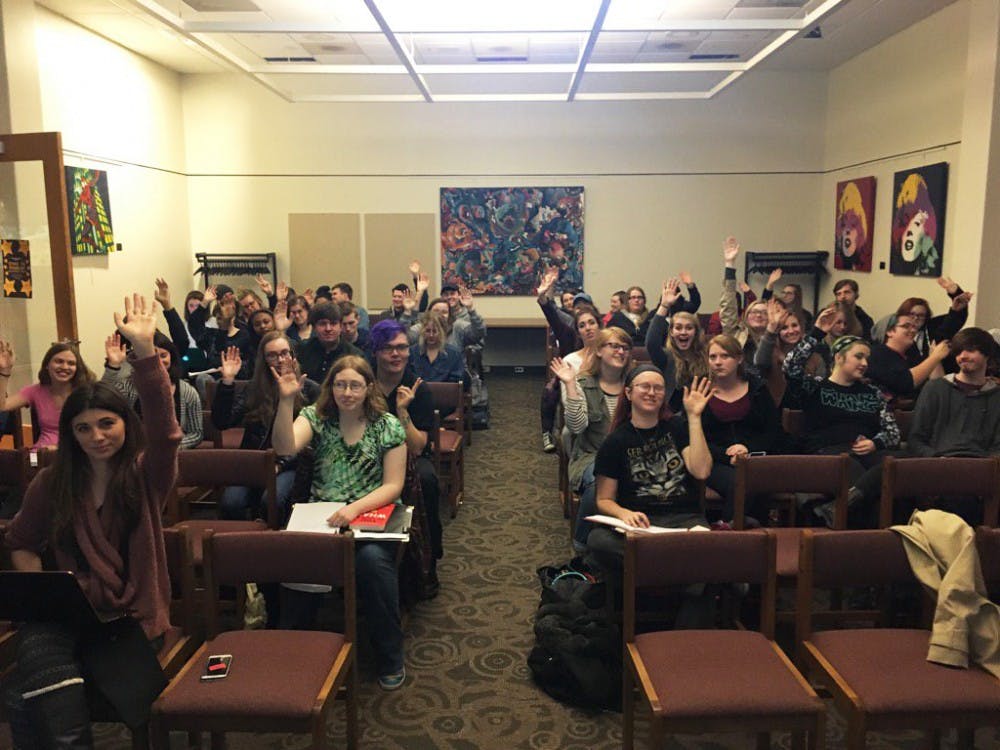Being an introvert isn't bad — as long as you know how to network to widen professional circles, both in real life and online. For some, this can be a scary process.
To help students overcome this challenge, Cathy Day, the assistant chair of the English department, and Eilis Wasserman, a career coach for the Cardinal Career Center, presented "Networking for Introverts" tonight in Bracken Library.
As self-identified introverts, Day and Wasserman hosted the presentation in an effort to help students overcome the fear and “terror” of networking as an introvert.
“If you’re born an introvert, you’ll die an introvert,” Wasserman said.
The topics discussed during the event were stereotypes and myths about introverts, how introverts appear to extroverts, the definition of introversion, strengths of being an introvert and the basics of networking.
Introversion is defined as being where a person focuses their energy, Wasserman said. Introversion is described in four categories: social, thinking, anxious and restrained.
“For me, being an introvert is about my thinking capacity,” she said.
Day said being an introvert is not a liability, but rather it can be a strength for introverts. These strengths include decision making and strong listening along with being highly focused with deep thinking, self-sufficient and self-reliant, well prepared and having a strong leadership style, she said.
The question of the night was why to network at all. Wasserman and Day said networking is about "building relationships with people."
“You are giving as much as you are receiving,” Wasserman said. “If you give to others they will give back to you.”
Forcing an introvert to make connections widens the circle of individuals they know and therefore opens up more opportunities for the individuals, she said.
LinkedIn and Twitter were recommended to students to use during the presentation as a way to connect with others. Day gave the advice to use Twitter to connect with people and getting to know them before meeting face-to-face. Wasserman suggested using LinkedIn to connect with others about jobs or to be led in the right direction about who to connect with for job opportunities.
At the end of the session, many of Day’s students who were in attendance were asked to stand up and go to five people they didn’t know in the room and introduce themselves.
“The main thing I wanted them to pick up is that the transition from using social media for personal reasons to professional ones — it’s tough,” Day said. “I’ve been having a hard time getting my students to do that.”
Using social media to connect with others is part of Day’s class requirements.
“They are just as shy online as they are in person,” Day said. “So I hope that this made them feel empowered about expanding their networks.”





